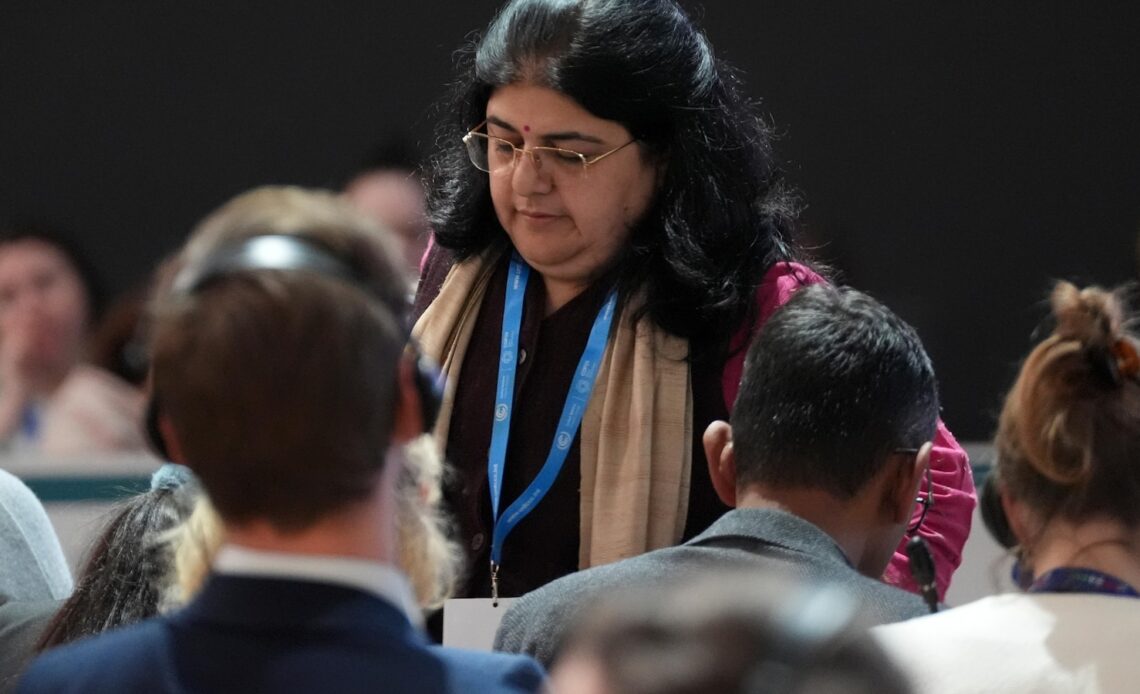BAKU, Azerbaijan — United Nations climate talks adopted a deal to inject at least $300 billion annually in humanity’s fight against climate change, aimed at helping developing nations cope with the ravages of global warming in tense negotiations.
The $300 billion will go to developing countries who need the cash to wean themselves off the coal, oil and gas that causes the globe to overheat, adapt to future warming and pay for the damage caused by climate change’s extreme weather. It’s not near the full amount of $1.3 trillion that developing countries were asking for, but it’s three times a deal of $100 billion a year from 2009 that is expiring. Some delegations said this deal is headed in the right direction, with hopes that more money flows in the future.
But it was not quite the agreement by consensus that these meetings usually operate with and some developing nations were livid about being ignored.
COP29 President Mukhtar Babayev gaveled the deal into acceptance before any nation had a chance to speak. When they did they blasted him for being unfair to them, the deal for not being enough and the world’s rich nations for being too stingy.
“It’s a paltry sum,” India negotiator Chandni Raina said, repeatedly saying how India objected to rousing cheers. “I’m sorry to say we cannot accept it.”
She told The Associated Press that she has lost faith in the United Nations system.
A long line of nations agreed with India and piled on, with Nigeria’s Nkiruka Maduekwe, CEO of the National Council on Climate Change, calling the deal an insult and a joke.
“I’m disappointed. It’s definitely below the benchmark that we have been fighting for for so long,” said Juan Carlos Monterrey, of the Panama delegation. He noted that a few changes, including the inclusion of the words “at least” before the number $300 billion and an opportunity for revision by 2030, helped push them to the finish line.
“Our heart goes out to all those nations that feel like they were walked over,” he said.
The final package pushed through “does not speak or reflect or inspire confidence,” India’s Raina said.
“We absolutely object to the unfair means followed for adoption,” Raina said. “We are extremely hurt by this action by the president and the secretariat.”
Speaking for nearly 50 of the poorest nations of the world, Evans Davie Njewa of Malawi was more mild, expressing what he called reservations with the deal. And the Alliance of Small Island States’…
Click Here to Read the Full Original Article at ABC News: Business…

